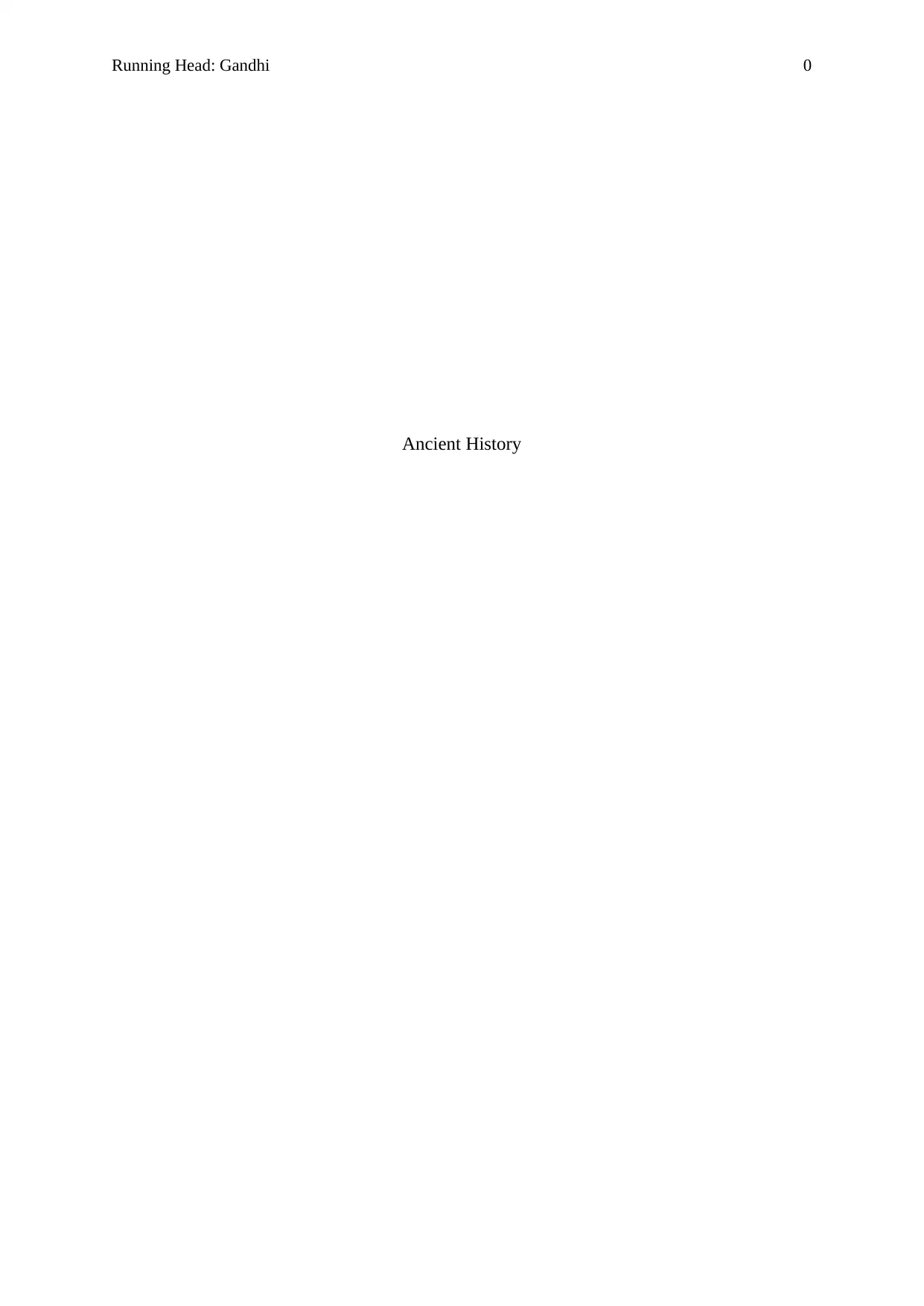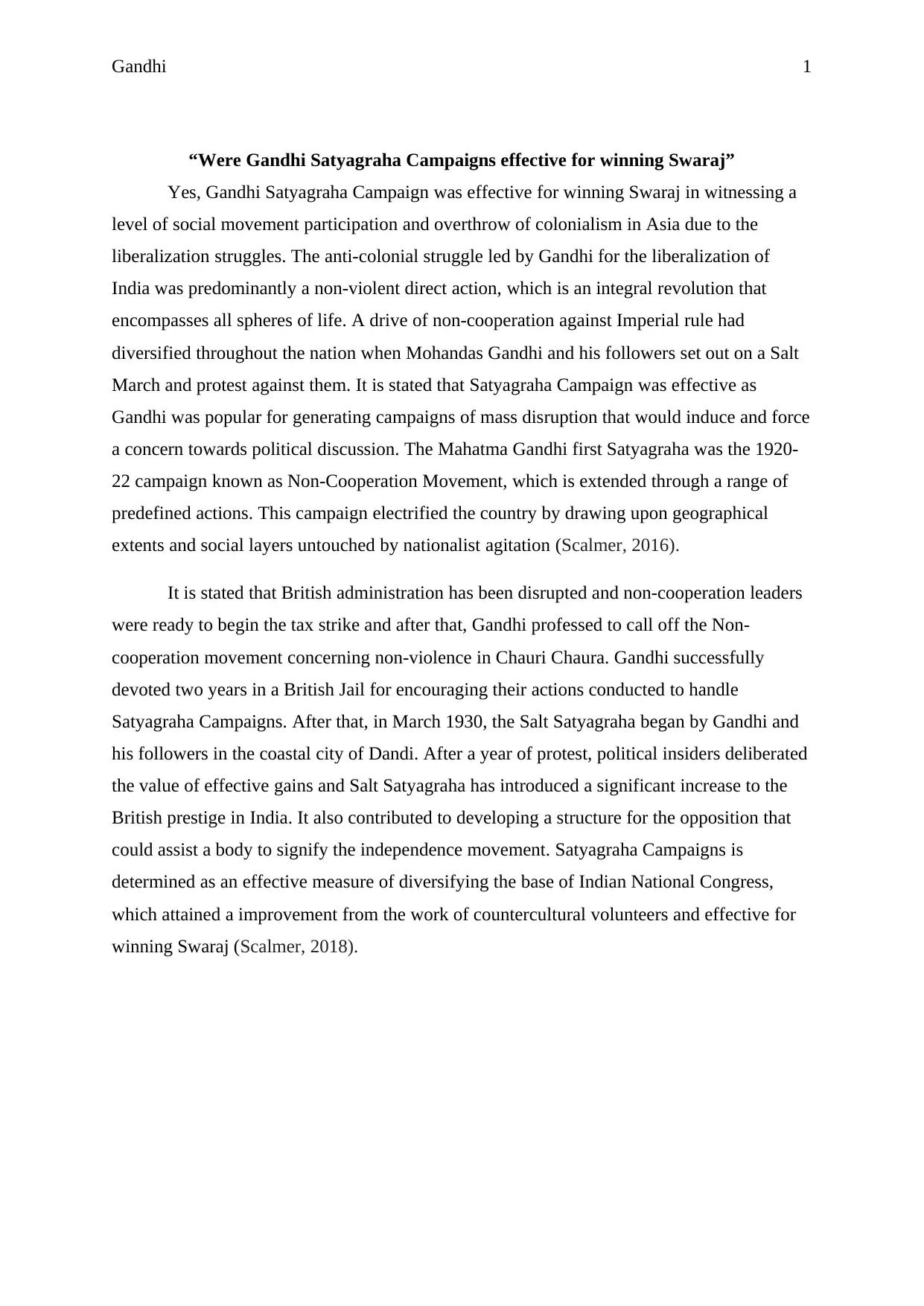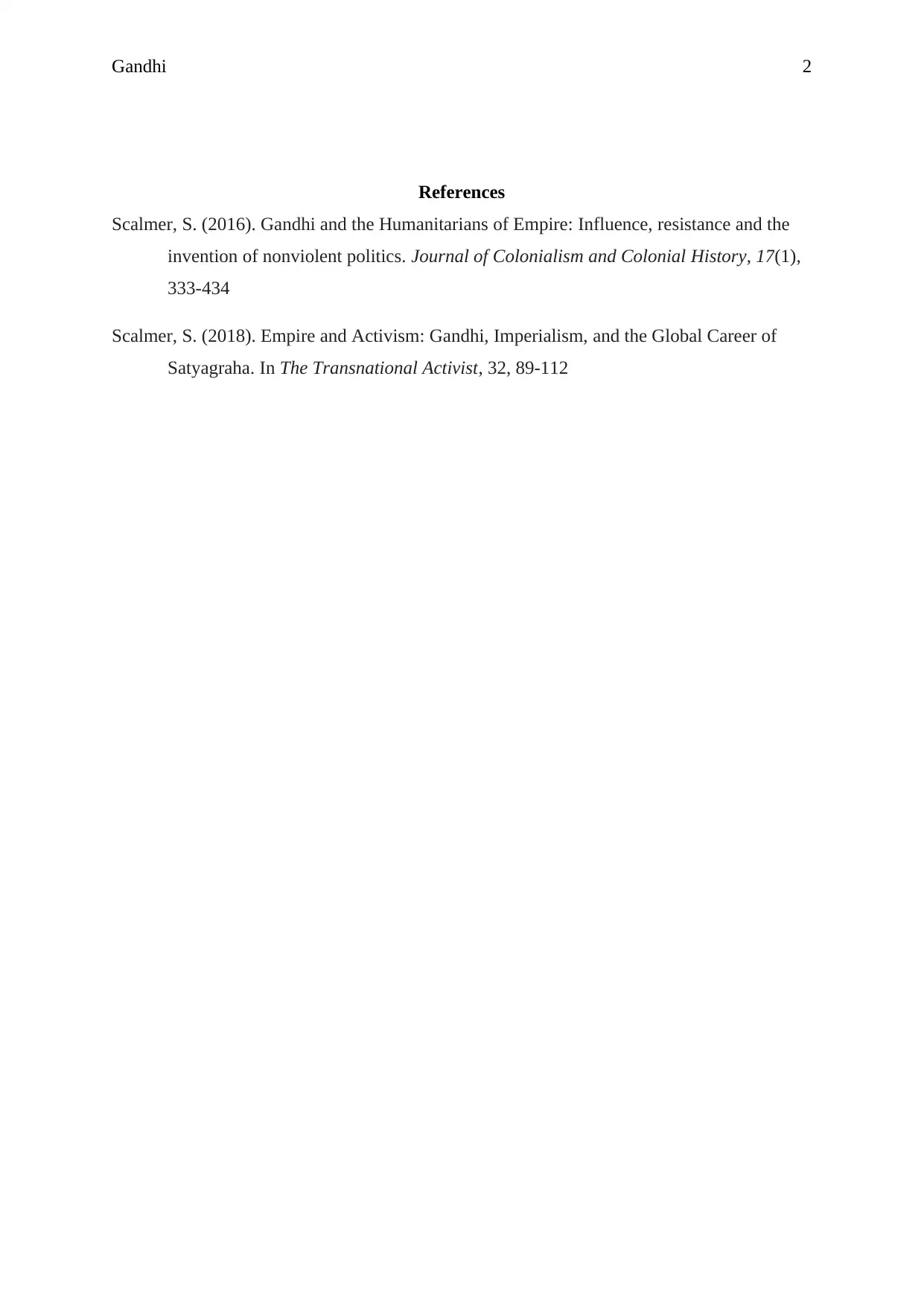Analyzing the Effectiveness of Gandhi's Satyagraha for Swaraj
VerifiedAdded on 2023/01/20
|3
|421
|42
Report
AI Summary
This report analyzes the effectiveness of Mahatma Gandhi's Satyagraha campaigns in achieving Swaraj, or self-rule, for India. It examines the Non-Cooperation Movement and the Salt March, highlighting their roles in disrupting British rule and galvanizing the Indian population. The report explores how Gandhi's non-violent approach, including campaigns of mass disruption, influenced political discourse and expanded the base of the Indian National Congress. It also discusses the impact of the Salt Satyagraha, including its contribution to the British prestige in India. The report references relevant scholarly works, such as those by Scalmer, to support its analysis of the campaigns' impact on the liberalization struggles and the broader anti-colonial movement.
1 out of 3









![[object Object]](/_next/static/media/star-bottom.7253800d.svg)